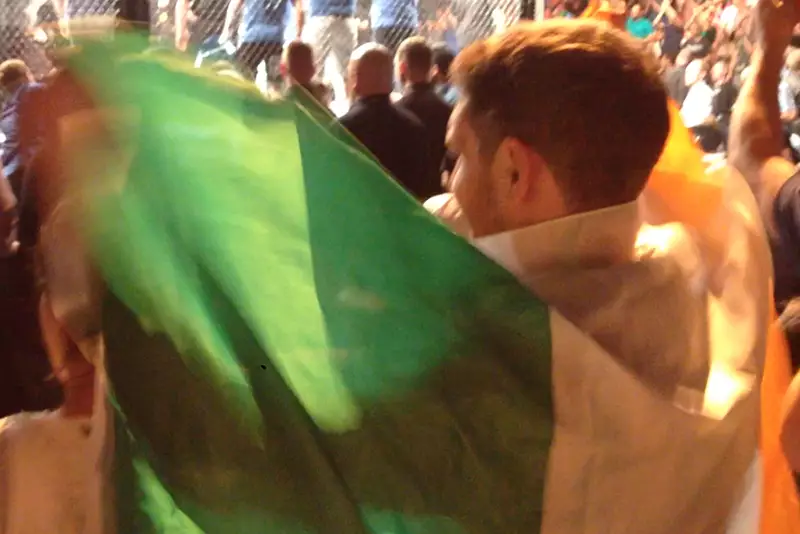The UFC has maintained a storied relationship with Ireland, marked most significantly by Conor McGregor’s explosive victory over Diego Brandao at UFC Fight Night 46 in July 2014. This landmark event took place at Dublin’s 3Arena, where a raucous crowd of 9,500 fans witnessed McGregor’s rise to global fame. However, since that vibrant evening, the UFC has not returned to the country, leading many fans and analysts to wonder why the organization has largely overlooked this market despite its passionate following.
Recent statements from UFC executive Dave Shaw shed light on one critical obstacle: the seating capacity of 3Arena. While it is a celebrated venue, with capabilities for 13,000 fans, its size is relatively modest by UFC standards. Shaw articulated this concern, noting that a return to Dublin would complicate matters. “It’s a great venue — but a small venue,” he observed, highlighting the logistical challenges associated with hosting a sizeable event. The UFC’s business model relies on large-scale events that can accommodate thousands of spectators, generating substantial ticket revenue and a lively atmosphere that fuels the sport’s entertainment value.
As a result, the constraints of the venue mean that any event would likely be classified as “small,” which does not align with the UFC’s typical production expectations. This raises questions about alternate locations larger than 3Arena but still within the vibrant Irish market.
Despite its struggles to return to Ireland, Shaw has indicated that the UFC is not abandoning Europe altogether. A noteworthy plan for 2025 involves a much-anticipated return to the United Kingdom, suggesting that while Dublin may remain off the schedule, other cities like London could serve as focal points for future events. Shaw’s assurance of more European events indicates a robust strategy aimed at revitalizing interest and engagement across the continent.
The UFC’s current media deal expiration in 2026 may usher in a new era, potentially opening opportunities for wider international events. Shaw’s insights hint at a calculated approach to expanding the brand’s European footprint, with the hope that those events are not merely confined to the U.K. Rather, there is optimism that Ireland can regain its place on the UFC map.
The dream of yet another UFC event thrilling Dublin fans may be temporarily sidelined due to venue limitations, but the door to future opportunities remains ajar. The UFC’s focus on larger markets in the UK signifies its unwavering commitment to European growth. Moreover, the ongoing dialogue between executives and venue management illustrates a willingness to explore options—even if that means taking a detour from Ireland for the moment. Ultimately, fans worldwide will be watching closely as the UFC navigates these challenges, hoping for a swift return to the vibrant Irish scene that has long celebrated the sport.

